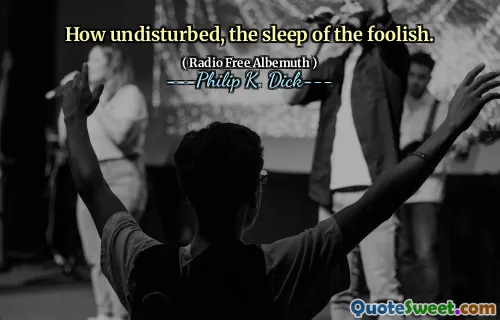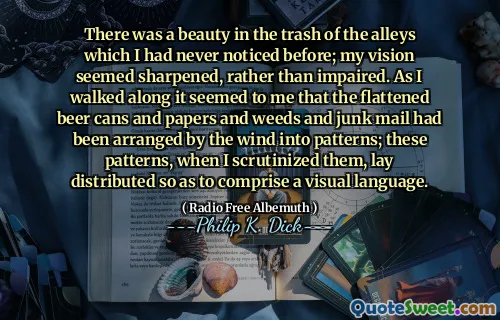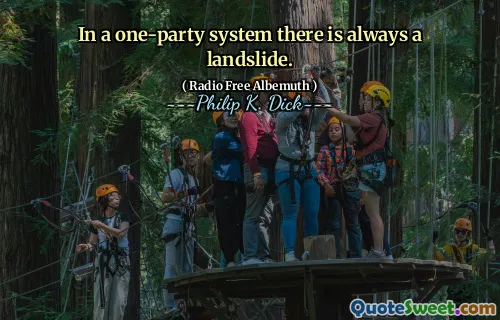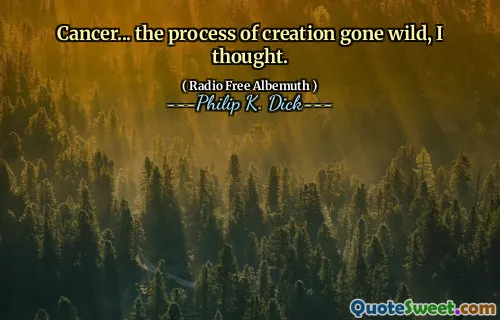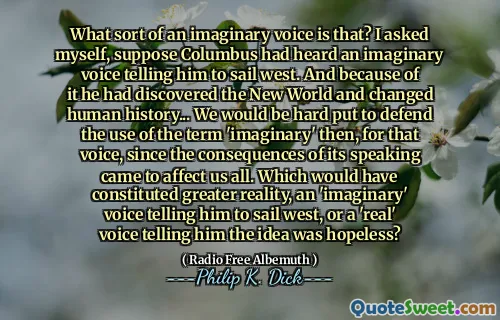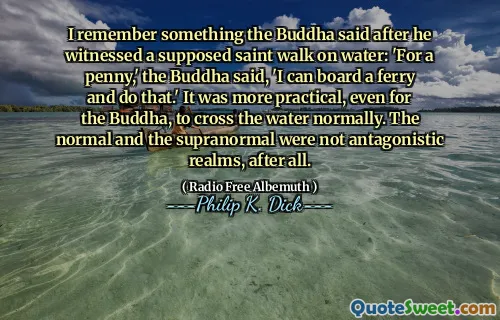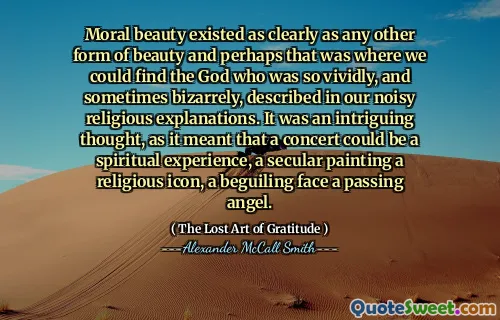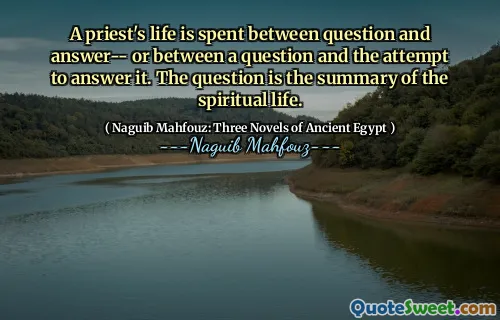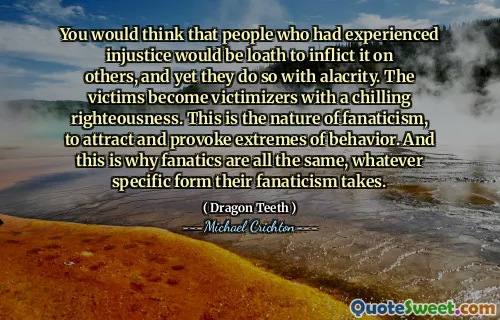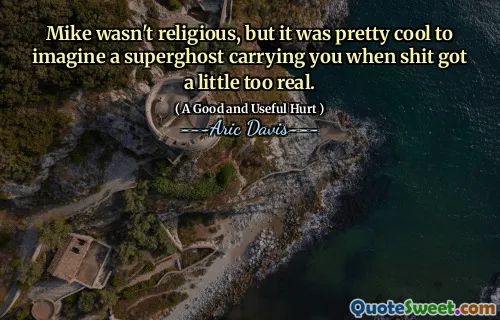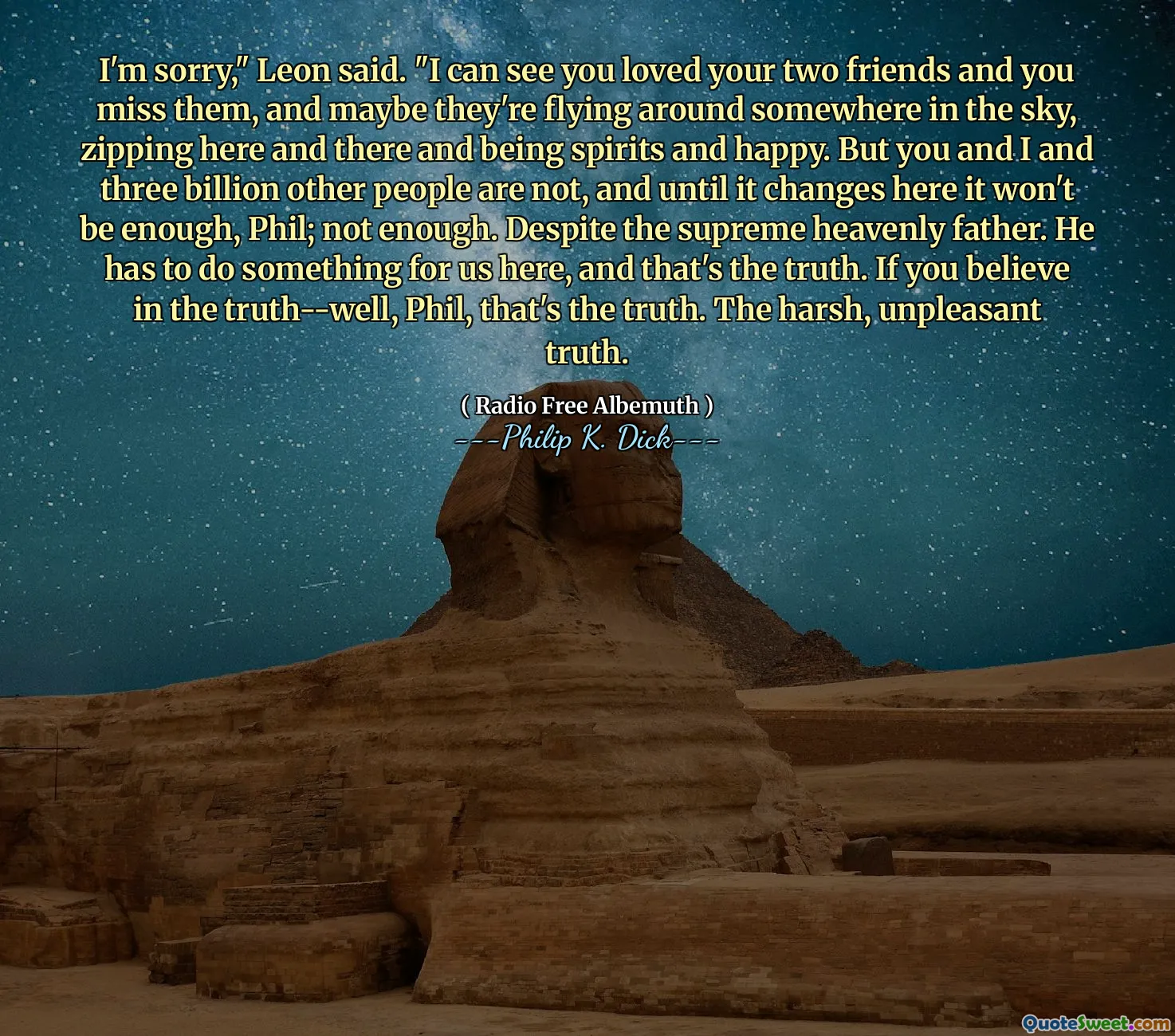
I'm sorry," Leon said. "I can see you loved your two friends and you miss them, and maybe they're flying around somewhere in the sky, zipping here and there and being spirits and happy. But you and I and three billion other people are not, and until it changes here it won't be enough, Phil; not enough. Despite the supreme heavenly father. He has to do something for us here, and that's the truth. If you believe in the truth--well, Phil, that's the truth. The harsh, unpleasant truth.
In "Radio Free Albemuth," Leon expresses understanding for Phil's loss, acknowledging that he truly cared for his friends. However, he emphasizes that despite the notion of their eternal happiness in the afterlife, it does nothing to change the struggles faced in the present world. Leon's words convey a sense of frustration that faith and spiritual beliefs do not alleviate the hardships experienced by the living, indicating a need for tangible change in their reality.
This conversation highlights a pivotal theme in Philip K. Dick's work: the tension between belief in a higher power and the harsh realities of life. Leon's perspective challenges Phil's idealistic views, confronting him with the uncomfortable truth that faith alone is insufficient to solve their problems. The insistence on truth rather than comforting beliefs reflects a deeper existential inquiry that resonates throughout the narrative.
